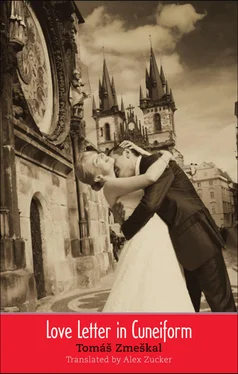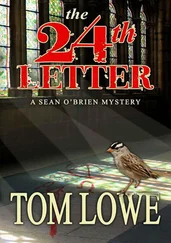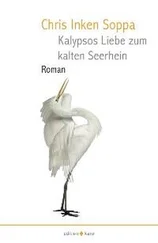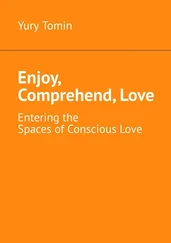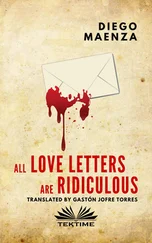At approximately one o’clock in the morning from the next-door apartment there was the sound of a scream, maybe even a struggle, followed by sudden silence. When one of the officers asked in a skeptical tone how the old lady could have heard it, he received an admonishing look and a lecture to the effect that not all elderly people were as incapable as the young generation thought and that they weren’t demented either, or even just plain deaf. That forced the officer to apologize, which Mrs. Marhoul took advantage of to instruct them to take a good look at the shiny black stone, adding that silver was also mined in the vicinity of Prague in the Middle Ages. The policemen, having no appetite for any further commentary, interrupted to offer thanks, stepped back out in the hallway, and rang and knocked a while on the door of the neighbor’s apartment. That calmed the old lady down and improved her mood, and afterward she wouldn’t even admit to having had any objections to the young generation. Everything had gone as she expected, as she had hoped. She stood peering out from the doorway a while, but when nobody came to answer the door for the two policemen, the less experienced one told her they would have to search the building and the garden one more time, so she should lock the door just in case anyone dangerous might still be nearby. That made her happy, and she did as she was requested.
The officers searched the entire building but didn’t find anyone. As they were going through the garden, however, they discovered some shards of broken glass from the window of the apartment the widow had told them about. They were aiming the cones of light from their electric lamps into the bushes along the garden wall when suddenly they heard the sound of uneven wheezing, like the compression and expansion of bellows in some human or animal organ, maybe even the tearing of a lung. Then a scream sliced the night air, from the canopy of the darkening clouds right down to the ground. A cry, a wheezing, a disembowelment. What surprised the policemen the most was that the cry was requesting their presence. Yes, it wanted them. It was asking for help, begging to be rescued, screaming for them not to leave him alone, not alone with him. Screeching and howling. The policemen switched off the safeties on their weapons and aimed the beams of their flashlights at the bushes where the voice was coming from. They could hear the voice running out of breath, it wouldn’t be long before it broke. The beams of their lights intersected as the officers advanced toward the source of the uproar, in the bushes along the wall, looking back every moment or two, just in case there was somebody else around. Finally they pulled back the last branch of the thicket to find a man huddled in a dirty brown coat.
“Police,” said the more experienced officer. “What’s all the racket about?”
“Police?” said the man. “Really? Well, you do have the uniforms.” That was all he managed to get out before he fainted. Meanwhile, several lights had gone on in the windows of the building overlooking the garden.
As they untangled the man from the bushes, the officers realized that he had a broken leg. They tried to examine it, but the man had wedged himself in so firmly between the wall and the bushes that it was difficult to extract him. When they finally managed to do so, the more experienced of the two switched on his transmitter, reported that they had found a wounded man, and requested an ambulance and instructions. The ambulance and another police car arrived almost simultaneously. Given the suspiciousness of the wounded individual and the broken window on the second floor next to Mrs. Marhoul’s apartment, they decided to do one more search of the building, the garden, and the vicinity. One of the officers rode with the man to the hospital, in case they needed to write up a report of the incident and take a statement from him.
“The double break in his leg could be the result of an unfortunate fall from the second floor,” the doctor told the policeman, who had spent all evening bored in an office at the precinct station and was pissed off that they had stuck him here, in surgery, to keep his eye on a guy who couldn’t run away anyway. He couldn’t have cared less about the description of a double fracture, and after the doctor had repeated it to him twice, he realized there was nothing else wrong with the suspect and made a mental note to himself: leg broken in two places — not going anywhere! Once the detainee had been examined, the officer entered the room. The man with the broken leg was lying in bed with several large pillows under his head. A smile spread across his face on seeing the officer. There were two other male patients in the room, one of whom kept trying to roll over in bed and the other whose otherwise peaceful breathing was interrupted by an occasional snore.
“I’ll tell you everything,” the man said to the officer. “Thank you so much, really. Have you caught him yet? He must be out there somewhere.” The policeman shook his head, pulled up a chair to the bed, and sat down.
The smiling man in bed was named Karel Souček. He was a thief and had confessed to trying to rob the apartment on the second floor. He had accessed the pastry shop by way of a side street, walked through it, and jimmied the door that led up to the second-floor apartment belonging to the pastry chef and his wife. The thief also stated that he had caused minimal damage, as he had jimmied only one lock; the skeleton keys he had worked on the other doors. In the course of his conversation with the officer who took his statement, he emphasized several times that he had never met the owner of the apartment, one Marek Svoboda, pastry chef. The thief asked whether the policeman could lend him a typewriter, they must have one in the hospital somewhere, and who else would need it at this time of night — or was it morning by now? Just give him a typewriter and he’d tell the officer everything, a complete confession, get it off his chest. He said he didn’t want to have anything to do with that nut. Never seen him in his life. Been in jail twice before, so he’s what you’d call a repeat offender, but just stealing, nothing worse than that. All the officer had to do was write up a preliminary report, he didn’t expect a confession, nobody had even reported a theft yet. But he couldn’t fail to notice that despite the occasional smile he kept flashing so bizarrely, the thief seemed nervous. So the officer told him they would wait till morning to take the rest of his statement, since otherwise it would disturb the two sleeping patients. The thief agreed that he had a point but still suggested the officer at least take down some notes so he would have something to sign and later on he could prove that he had cooperated from the start of the investigation, right from the very start, he emphasized, again, several times.
Karel Souček had gained entrance to the pastry shop from a side street called Hlavsa. There were only three buildings on Hlavsa Street, the rest of it consisting of a six-foot-high wall around the garden of the building he had broken into. There too, according to his statement, he’d had to jimmy the door; that was the property damage he’d caused. He had walked through the pastry shop, sampled two or three cakes, but didn’t find any money in the cash register. But that didn’t surprise him, he had figured on that. He found the door leading to the second-floor apartment and opened it with a skeleton key. He walked up the stairs, and as he was looking around the apartment, Mr. Svoboda had surprised him coming out of the kitchen. At first the thief had been startled, but then to his amazement the pastry chef said hello, walked past him, went to the toilet, and took a leak without even closing the door. Then he went into the bathroom, carefully washed his hands, walked past him again, nodding hello, and went back to the kitchen. The thief was stunned, and being concerned, as he said, that something wasn’t quite right, he followed Mr. Svoboda into the kitchen, afraid he was going to call the police. While the thief was weighing what he should do, the pastry chef came out a third time and asked whether he had eaten anything yet and whether he would like a snack. He apologized that ever since his wife had been gone all he had around was cheese; he hadn’t had a chance to buy any salami or anything else for breakfast. The thief said this had surprised him so much he asked the pastry chef how come he wasn’t afraid of him.
Читать дальше
